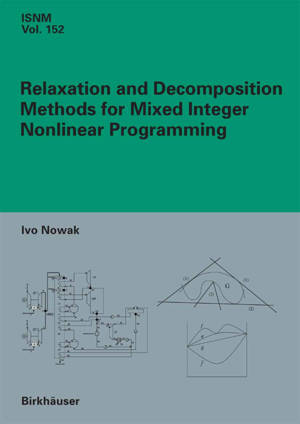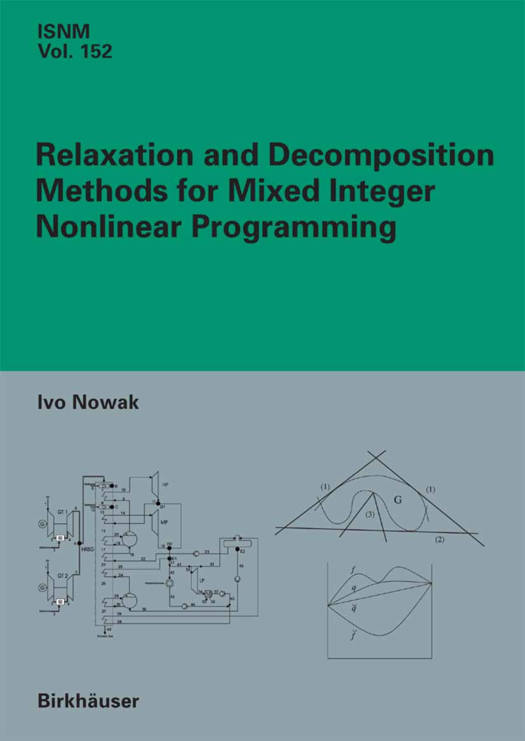
- Afhalen na 1 uur in een winkel met voorraad
- Gratis thuislevering in België vanaf € 30
- Ruim aanbod met 7 miljoen producten
- Afhalen na 1 uur in een winkel met voorraad
- Gratis thuislevering in België vanaf € 30
- Ruim aanbod met 7 miljoen producten
Zoeken
Relaxation and Decomposition Methods for Mixed Integer Nonlinear Programming
Ivo Nowak
€ 105,45
+ 210 punten
Omschrijving
Nonlinearoptimizationproblemscontainingbothcontinuousanddiscretevariables are called mixed integer nonlinear programs (MINLP). Such problems arise in many ?elds, such as process industry, engineering design, communications, and ?nance. There is currently a huge gap between MINLP and mixed integer linear programming(MIP) solvertechnology.With a modernstate-of-the-artMIP solver itispossibletosolvemodelswithmillionsofvariablesandconstraints, whereasthe dimensionofsolvableMINLPsisoftenlimitedbyanumberthatissmallerbythree or four orders of magnitude. It is theoretically possible to approximate a general MINLP by a MIP with arbitrary precision. However, good MIP approximations are usually much larger than the original problem. Moreover, the approximation of nonlinear functions by piecewise linear functions can be di?cult and ti- consuming. In this book relaxation and decomposition methods for solving nonconvex structured MINLPs are proposed. In particular, a generic branch-cut-and-price (BCP) framework for MINLP is presented. BCP is the underlying concept in almost all modern MIP solvers. Providing a powerful decomposition framework for both sequential and parallel solvers, it made the success of the current MIP technology possible. So far generic BCP frameworks have been developed only for MIP, for example, COIN/BCP (IBM, 2003) andABACUS (OREAS GmbH, 1999). In order to generalize MIP-BCP to MINLP-BCP, the following points have to be taken into account: - A given (sparse) MINLP is reformulated as a block-separable program with linear coupling constraints.The block structure makes it possible to generate Lagrangian cuts and to apply Lagrangian heuristics. - In order to facilitate the generation of polyhedral relaxations, nonlinear c- vex relaxations are constructed. - The MINLP separation and pricing subproblems for generating cuts and columns are solved with specialized MINLP solvers.
Specificaties
Betrokkenen
- Auteur(s):
- Uitgeverij:
Inhoud
- Aantal bladzijden:
- 213
- Taal:
- Engels
- Reeks:
- Reeksnummer:
- nr. 152
Eigenschappen
- Productcode (EAN):
- 9783764372385
- Verschijningsdatum:
- 15/08/2005
- Uitvoering:
- Hardcover
- Formaat:
- Genaaid
- Afmetingen:
- 165 mm x 231 mm
- Gewicht:
- 544 g

Alleen bij Standaard Boekhandel
+ 210 punten op je klantenkaart van Standaard Boekhandel
Beoordelingen
We publiceren alleen reviews die voldoen aan de voorwaarden voor reviews. Bekijk onze voorwaarden voor reviews.











